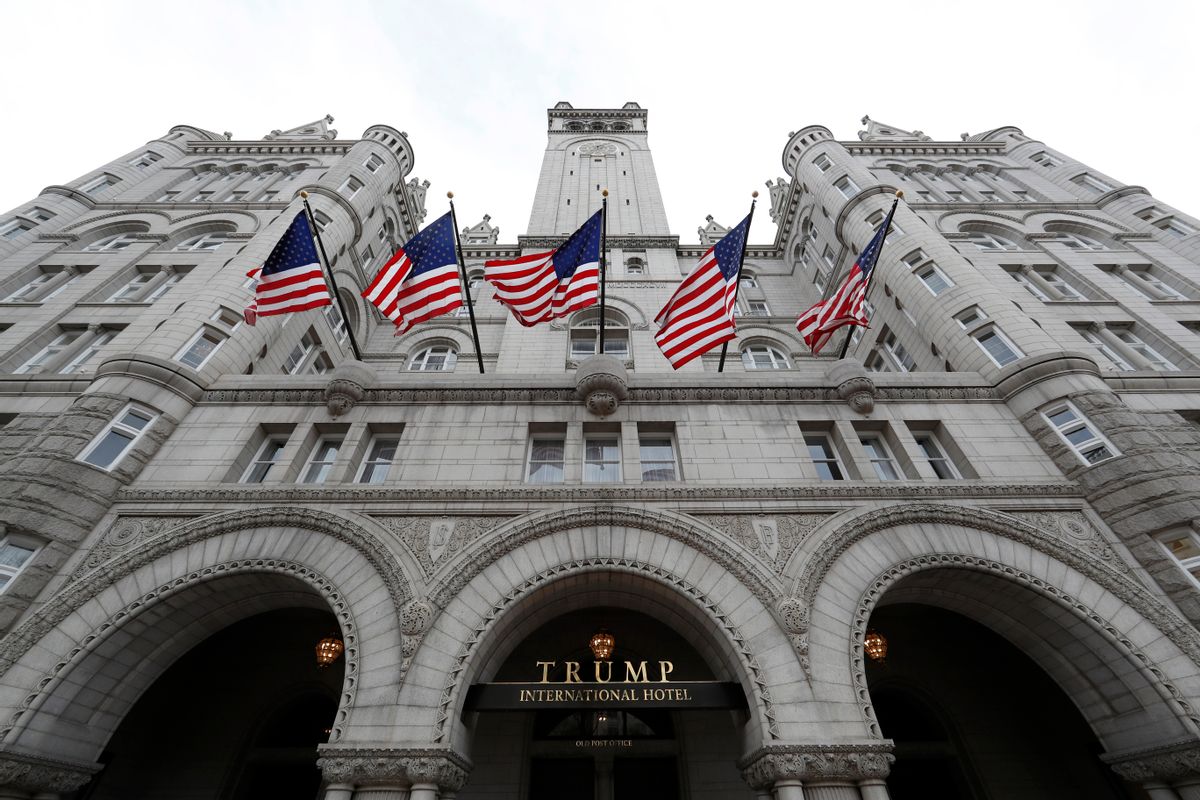A federal appeals court ruled to allow an emoluments lawsuit accusing President Donald Trump of violating the U.S. Constitution by accepting money from foreign governments at his Washington hotel to proceed after his attorneys attempted to have the case dismissed.
The Fourth Circuit Court of Appeals voted 9-6 to reject Trump's motion to dismiss the case, which was brought by the attorneys general of Maryland and the District of Columbia, accusing the president of violating the emoluments clauses of the Constitution.
The court split largely down ideological lines in denying Trump's bid to halt discovery in the case, which was ordered by a federal district judge in Maryland, Politico reported. A Fourth Circuit panel including only Republican-appointed judges had previously voted to dismiss the lawsuit last year.
Trump attorney Jay Sekulow vowed to take the case to the U.S. Supreme Court.
"We disagree with the decision of the Fourth Circuit," he told the outlet. "This case is another example of presidential harassment. We will be seeking review at the Supreme Court."
Maryland Attorney General Brian Frosh told The Washington Post that the decision was a "strong ruling against the president."
"It clearly held that he is not above the law — that like every other citizen he is subject to the Constitution and the laws of the United States," he said.
The case focused on Trump's bid to block the discovery process ordered by U.S. District Court Judge George Hazel in the case.
Judge Diana Motz wrote that Trump had not shown an "indisputable" right to shut down the lawsuit, and the documents sought by the attorneys general in the case did not interfere with the president's official duties.
"The discovery here — business records as to hotel stays and restaurant expenses, sought from private third parties and low-level government employees — implicates no executive power," she wrote. "The president has not explained, nor do we see, how requests pertaining to spending at a private restaurant and hotel threaten any executive branch prerogative."
The six dissenting conservative judges suggested that the lawsuit was politically motivated, questioning whether "something other than law was afoot."
"The plaintiffs here are attempting nothing less than to enjoin the president of the United States for official actions taken while in office," Judge J. Harvie Wilkinson wrote in the dissenting opinion. "They are seeking to harness the coercive machinery of legal process to drag the president through what are coming to seem more and more like interminable proceedings."
Wilkinson argued that Trump had "visited not the slightest concrete harm on any plaintiff." Motz rejected Wilkinson's finding.
"The dissent portrays us as 'partisan warriors' acting with an 'absence of restraint . . . incompatible with the dictates of the law,'" she wrote. "But we remain confident that our narrow holding, reached with careful attention to the standard of review, is the essence of restraint. Readers may compare our measured approach with the dramatics of the dissent and draw their own conclusions."
Judge James Wynn, an Obama appointee, responded to Wilkinson's argument by labeling the dissenting judges "political hacks."
"The dissenting opinions, in a disappointing display of judicial immodesty, have made this case into something it is not," he said. "The dissenting opinions abandon notions of judicial temperament and restraint by commandeering this case as a vehicle to question the good faith of judges and litigants that are constituent members of our union."
The emoluments cases against Trump have led to differing decisions depending on the venue in which they were heard. In February, the DC Circuit Court rejected a lawsuit filed by hundreds of Democratic members of Congress which accused Trump of receiving money from foreign governments over a lack of standing to sue.
Last fall, a Second Circuit panel in New York revived a lawsuit brought by business groups which accused Trump of violating the emoluments clause. The Department of Justice appealed the decision, and the case has stalled.
Last year, the Trump Organization put the lease for its Washington hotel up for sale, offering investors to cash in on business from foreign governments.
"Tremendous upside potential exists for a new owner to fully capitalize on government related business upon rebranding of the asset," a Trump Organization sales brochure obtained by CNN said.
Some potential buyers raised "ethical concerns," because the hotel is overpriced and "being marketed to deep-pocketed foreign buyers," who may see a potential purchase as an opportunity to "curry favor" with Trump," the network reported.



Shares